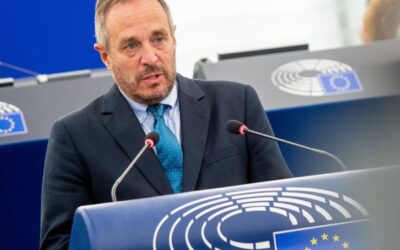At plenary session of the European Parliament on Tuesday, MEPs adopted the report on“Towards an EU strategy to promote education for children in the world.” MEP György Hölvényi contributed to the preparation of the report on behalf of the Committee on Development. In his written contribution, the EPP Group Coordinator stressed that “Africa’s extremely young population represents both a huge challenge in curbing migration and an opportunity for the African economy”.
MEP György Hölvényi stressed that “Africa is the youngest continent on Earth. Lakosságának 40 százaléka 15 év alatti, évente pedig 10 millióan lépnek be a munkaerőpiacra. Az afrikai országok azonban csak akkor tudnak élni a fiatalok jelentette lehetőséggel, ha a felnövekvő generációk megfelelő oktatásban és szakképzésben részesülnek”.
The Christian Democrat MEP said, “Education tailored to the needs of the labour market and the economy is one of the most important tools to support local livelihood and addressing root causes of migration, alongside establishing security and facilitating job creation. The EU’s external policies must therefore support the improvement of education by all available means, the politician stressed. He added: “Local churches and religious organisations have an experience in education that the EU cannot ignore. This is essential for tangible results. It is a big step forward that we have managed to draw attention to this in the report adopted today. It is regrettable, however, that the left consistently condemns initiatives that recognise the real social relevance of churches on ideological grounds”.
The report aims to highlight the challenges of rebuilding education systems in the wake of the coronavirus epidemic and to provide political guidance to the European Commission on how to use financial resources for education more effectively. The involvement of the churches is an important step in this direction,” MEP György Hölvényi concluded, pointing out that “real change can only be achieved, if the EU uses the available resources in a more effective and targeted way than it has been done so far, and works closer with working with local organisations and takes into account real local needs and economic conditions.



